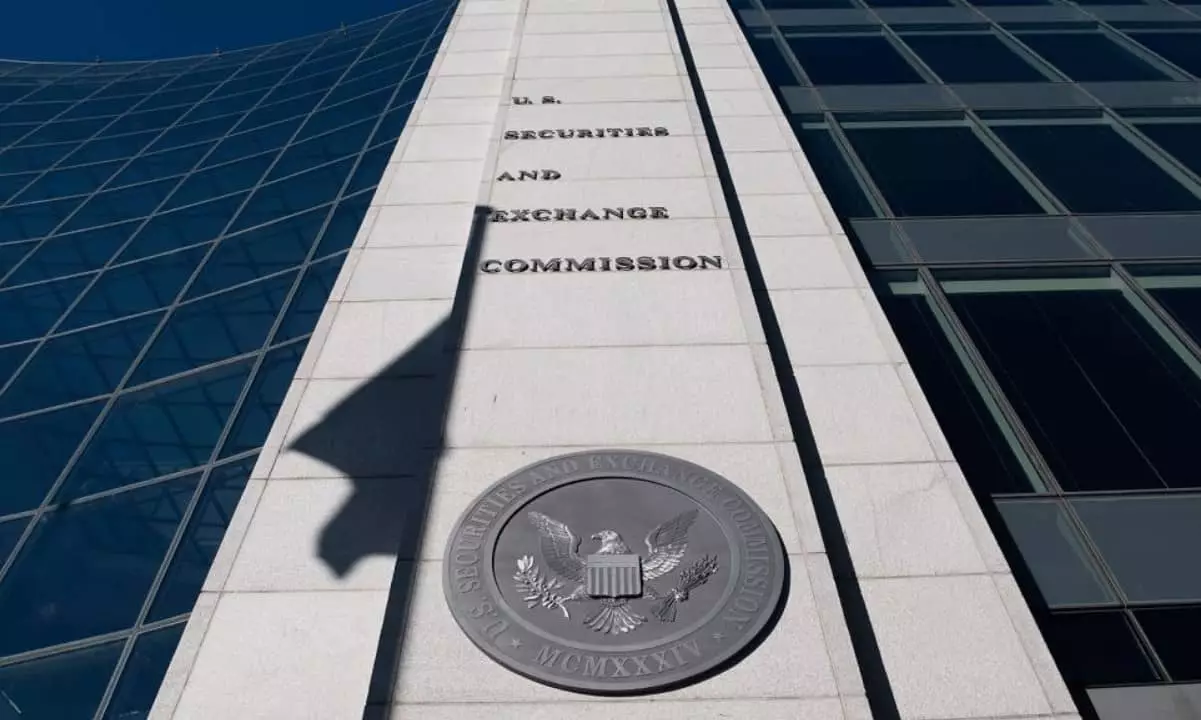The realm of cryptocurrency is quickly evolving, necessitating regulatory frameworks that can keep pace with the changing landscape. Amidst this dynamic environment, Republican lawmakers, spearheaded by Representative Patrick McHenry and Senator Cynthia Lummis, have voiced significant concerns about the Securities and Exchange Commission’s (SEC) approach to regulating crypto custody. Their recent letter to SEC Chair Gary Gensler calls for a re-evaluation of the SEC’s Staff Accounting Bulletin No. 121 (SAB 121), shedding light on essential issues related to regulatory processes and market fairness.
The Controversy of SAB 121
In their correspondence, the lawmakers assert that SAB 121 was introduced without proper consultation with critical regulatory bodies, thus deviating from established norms for rulemaking. This unilateral approach potentially jeopardizes consumer safety by creating an environment of confusion. At the heart of the matter is the requirement that digital asset custodians recognize liabilities linked to their assets and maintain a corresponding offset on their balance sheets based on current market valuations. Such a deviation from conventional accounting practices raises questions about the true financial obligations custodians hold toward their clients.
Republicans assert that this directive may inadvertently inflate the risks consumers face, as the accounting treatment applied under SAB 121 could lead to misrepresentations of custodians’ financial health. They argue that rescinding this bulletin aligns with the SEC’s authority and is prudent, pointing out historical precedents where similar staff accounting bulletins were revisited.
The lawmakers highlighted a critical legal interpretation brought forth by the Government Accountability Office (GAO), which classified SAB 121 as a “rule” according to the Congressional Review Act. This classification implies that the SEC should have observed the formal procedures stipulated by the Administrative Procedure Act (APA) instead of categorizing SAB 121 merely as staff guidance. This oversight raises concerns about regulatory accountability and underscores the need for transparency in how rules are applied across the board.
The letter’s implications become even more pertinent when considering the SEC’s apparent discretionary power in granting exemptions to certain financial entities. Reports indicate that select institutions, such as BNY Mellon, have benefited from individualized exemptions that allow them to circumvent the more taxing aspects of SAB 121. At a public hearing in Wyoming, it was revealed that BNY Mellon received an exemption that facilitated its entry into the crypto custody market. Such preferential treatment not only hampers a level playing field for market participants but also raises deeper questions regarding the SEC’s objectivity in enforcing its own regulations.
Concerns of Selective Enforcement
The notion of “picking winners and losers” in the crypto custody space has resonated strongly with the concerned lawmakers. By allowing certain firms exemptions that others do not enjoy, the SEC risks breeding an environment of distrust among cryptocurrency players. The inconsistency in rule application may disillusion potential investors, as varying standards undermine the validity of disclosures from different custodians. The lawmakers underscore that a transparent regulatory framework is essential for building investor confidence and ultimately ensuring the healthy evolution of the crypto sector.
Chris Land, general counsel to Sen. Lummis, articulated the broader implications of these discrepancies, pointing out that BNY Mellon’s struggle amidst the burden of SAB 121 represents the hurdles faced by many firms seeking to engage in the cryptocurrency ecosystem. With BNY Mellon attempting to strengthen its position in crypto custody, the burdensome requirements of SAB 121 became an obstacle that the SEC appeared willing to bypass.
To foster a sustainable and inclusive environment for cryptocurrency, lawmakers are advocating for a re-evaluation and potential rescindment of SAB 121. Their call for increased transparency and fairness is crucial in light of the rapidly evolving crypto landscape. The longer these regulatory discrepancies persist, the greater the risk of consumer disillusionment and a stunted market innovation.
Navigating the regulator’s priorities and consumer protections requires a balanced approach that takes into account the unique nature of digital assets. As the dialogue between lawmakers and regulatory bodies continues, the focus on accountability and transparency will remain pivotal in shaping a regulatory framework that manufacturers trust and consumers deserve in the burgeoning world of cryptocurrency.














